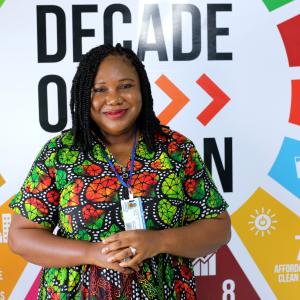GoL and Development Partners conclude the 5th National Coordination Committee Meeting on the National Development Plan

November 28, 2024
The Government of Liberia and its Development Partners have concluded the National Coordination Committee meeting on the draft ARREST Agenda for Inclusive Growth and Development.
The meeting was held at the Ministry of Finance and Development Planning, on November 28, 2024.
It was meant to gather inputs and review passed resolutions from various dialogues, comments, recommendations, and outcomes from development partners, stakeholders, civil society organizations, persons with disability, and officials from Ministries and Agencies across government.
Making remarks at the opening, Liberia’s Finance and Development Planning Minister, Hon. Augustine K. Ngafuan praised development partners across various sectors of the economy for their commitment, support, and coordination throughout the AAID and CDA planning processes.
He also thanked other government officials, deputies, the Assistant Minister, technicians from the Ministry of Finance and Development Planning, other line ministries, and agencies for the level of commitment and efforts shown.
According to him, in early September, the National and Sub-national consultations were held with relevant stakeholders across the fifteen counties to solicit views and inputs regarding drafting the ARREST agenda and the County Development Agenda.
“Today we appreciate your efforts, inputs and it has been incorporated into the draft document for review’’ Minister Ngafuan explained.” He noted that the ARREST and County Development Agenda would be delivered to the National Steering Committee, and the President of Liberia will chair the meeting, which is slated for next week of December 2024.
However, the sectorial goals of the ARREST Agenda for Inclusive Growth and the priorities of the County Development Agenda have been largely informed by the outcome of the national and sub national levels.
The Liberian finance minister disclosed that the ARREST Agenda and the County Development Agenda have drawn lessons and built on the achievements from previous medium-term development plan-poverty reduction strategies, the Agenda for Transformation, and the Pro-Poor Agenda for Prosperity and Development.
“All of the past plans are aligned with Liberia's vision 2030 as well as continental and global development frameworks such as the Sustainable Development Goals and Africa’s Agenda 2063, the Africa’s we want’’ Minister Ngafuan asserted.
The country’s chief financial expert revealed that the County Development Agenda (CDA) seeks to prepare Liberia from a low-income to an inclusive middle-income country. The projections indicate the country's current GDP per capita of US 849 Dollars will grow to US 1050 US up to 2029 of which 25 percent is slated to come from Official Development Assistance (ODA) . Minister Ngafuan added that the ARREST Agenda for Inclusive Growth and Development proposes domestic resource mobilization will be measured by strengthening strong tax policy measures including rolling out value-added tax and exploring innovation financing measures.
UNDP Deputy Resident Representative, Mr. Louis Kuukpen speaking on behalf of the co-chair of the National Coordination Committee commended the government of Liberia through the Ministry of Finance and stakeholders for producing the draft National Development Plan 2025-2029 and the 15th County Development Agenda (CDA).
He thanked the Embassy of Sweden and the UN Joint SDG Fund through the UNRCO, UNFPA, UN Women, and UNICEF for funding the technical assistance.’’ We applaud the Government for holding extensive consultation with the masses and key informants’’ he explains.
According to him, the participation of various stakeholders is fundamental in enhancing inclusivity and setting appropriate interventions for development. As we move towards the conclusion of the actual planning process.
“There are enormous implementation and execution issues that we need to pay serious attention to going forward which include ensuring the alignment of the National Budget with the AAID programs and development results, enhancement of capacities in implementation planning, periodic reporting, follow-up, and learning at the level of Ministries, Agencies, and Commissions and the national level”, Mr. Kuukpen noted.
For her part, the United Nations Resident Representative to Liberia, Ms. Christine N. Umutoni says Liberia’s National Development Plan from 2025-2029 marks a transformative step towards sustainable and inclusive development.
She noted that despite challenges like multidimensional poverty, unemployment, and limited infrastructure, Liberia’s youthful population, natural resources, and strategic location offer immense potential.
However, the National Development Plan emphasizes inclusiveness, sustainability, accountability, and local ownership.
According to her, the plan is unique because it applies a cause-consequence approach to development, and ensures interventions are catalytic and enable domino effects.
It introduces program planning, laying the fundamentals for programs-based budgeting and strengthening the links between resources and outcomes.
She disclosed that for Liberia to achieve the national development Plan, it requires a total investment of US$7.6 billion United States dollars of which the government has committed to enhancing domestic resource mobilization, pursuing innovative financing mechanisms, and fostering partnerships with private sector stakeholders, development partners, and the diaspora.
The National Coordination Committee Meeting was attended by Liberia’s Finance and Development Planning Minister, Hon. Augustine K Ngafuan, Deputy Minister for Budget and Development Planning, Hon. Tanneh G. Brunson, United Nations Resident Representative to Liberia, Ms. Christine N. Umutoni, World Bank Country Manager to Liberia, Ms. Georgia Wallen, United Nations Development Program Deputy Resident Representative Mr. Louis Kuukpen, Assistant Minister for Development Planning, Hon. J. Willington Barchue and other development partners, Representatives from the Civil Society organization, and officials from Ministries and Agencies among other staffers from MFDP witnessed the official.

“This joint programme is supported by the Joint SDG Fund. We sincerely appreciate the contributions from the European Union and the governments of Belgium, Denmark, Germany, Ireland, Italy, Luxembourg, Monaco, the Netherlands, Norway, Poland, Portugal, Republic of Korea, Saudi Arabia, Spain, Sweden, and Switzerland in accelerating progress towards the SDGs.”
Written by


















